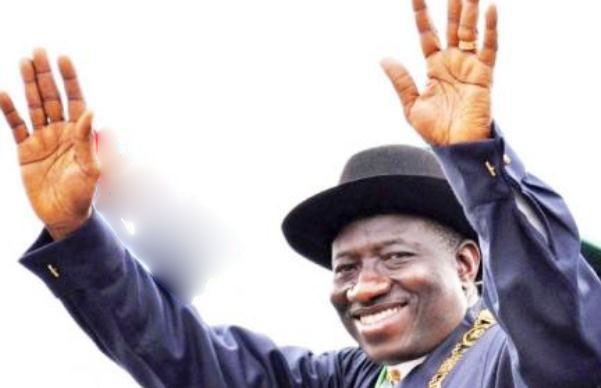
Appearing as guests on the final edition of ‘Politics Today’ for 2013 were a lecturer of Political Science at the University of Lagos, Kayode Esuola, a former Chairman of Lagos League of Political Parties, Udoka Udeogaranya, and a member of the PDP in Delta State and Professor of Medicine, Victor Izegbu.
On an edition that was designed to review Nigeria’s notable political activities of 2013, the guests took turns to touch on several issues from the electoral process, to political alliances, rivalries, governance and many that tend towards leadership.
The crisis that rocked the People’s Democratic Party, PDP from the beginning of the year was identified as one of the biggest highlights of the year, considering that it lasted all through the 12 months.
Prof Izegbu of the PDP however said that there is nothing unusual about the crisis, claiming that historically this has always been the case in Nigerian politics, citing internal problems within the National Congress of Nigeria and the Camerouns, NCNC, and those of the Action Group in the 1960s with their effect on the entire country.
He however agreed as being unfortunate that the crisis degenerated into historic occurrences like the ruling party of the President losing its majority grip in the 
The problem, according to Udeogaranya, is that Nigerian politicians have not been practicing party politics, “to them it’s all about a game of interest…but the belief of your party should be everything to you. It doesn’t really matter who takes this position or that position, as long as that person can advance the cause of the political party.”
Dr Esuola preferred to theorize the crisis as really not being about the party, but the entire Nigerian political system. He said “the crisis is absolutely normal when you’re trying to build a capitalist state, so I call it a normal contradiction of capitalist state formation.”
On the defection of notable members of the PDP, especially governors and federal lawmakers to the All Progressives Congress, APC, Dr Esuola referred to the highly celebrated alliance as a joke. According to him, “they are all looking for what to take, eat, and take home”. He berated what he referred to as the lack of ideology and the obvious absence of Nigerians’ interest in their decision.

Arguing further, he wondered how anyone would explain the new found relationship between former president, Olusegun Obasanjo, and former Lagos State Governor and APC leader, Bola Tinubu, considering the fierce battle that both men were engaged in for many years. Buttressing his point with a Yoruba adage, he said that the new found friendship between both men who never agreed in recent years is obviously a product of personal interests and not the interest of Nigerians or any political ideology.
In what seems like aligning with Presidential Spokesman, Doyin Okupe’s comments about the APC that it is chasing after PDP members because it lacks its own structure, Prof. Izegbu said that he is not sure that even the APC members are sure what they stand for, as he cannot identify the political ideology that the party represents.
Udeogaranya, however expressed a different point of view. The former chairman of Lagos League of Political Parties suggested that the APC is not doing anything unexpected in politics by wooing members of the ruling party to their side.
According to him, “APC needs numbers to win”, he reminded that politics is a game of numbers and no matter how great the ideologies are, you still need the numbers, else “sooner or later they (APC) will seize to exist”
On the performance of the Independent National Electoral Commission in 2013 with its conduct of the Anambra Election particularly in focus, Prof Izegbu said that  he feels the election was reasonably well conducted, as the INEC did what they could possibly have done.
he feels the election was reasonably well conducted, as the INEC did what they could possibly have done.
Izegbu who confessed his ambition to be the Governor of Delta State in 2015 expressed optimism that INEC would do a better job in the next elections. The Professor of medicine on a lighter mood added that he has the diagnosis of the Nigerian problem and he intends to cure it.
Udeogaranya was however of a different opinion, he indicated that the INEC Chiarman, Prof Jega does not have what it takes to deliver a credible process in 2015. He explained that when politicians and political parties are given access to the INEC database and records, then there is a “need to go back to the basics.”
Esuola however believes that the ultimate problem is the orientation of the Nigerian electorates. He posited that as long as many people are still easily bought to do what they normally would not believe in, because of their want of money, it would be difficult to have credible elections in Nigeria.
He stressed that what we have in Nigeria is “free and fair voting and not free and fair election” because election is a process.
The programme rounded off with a review of the performance of President Goodluck Jonathan in 2013.
Professor Izegbu stated that based on his performance in the first half of the year, he would rate him 70%, citing his call for the National Conference as a laudable idea that “nobody saw coming”, but with all the challenges of rising insurgency, PDP crisis, 18 page letter from former president, Obasanjo and more, “the second half of the year has not been good for him” so he would score him 50%.
While Udeogaranya scored the President an overall 60%, Mr Esuola said that he would score him 65% because he sees him as a president who really is trying to tackle issues from the roots.


